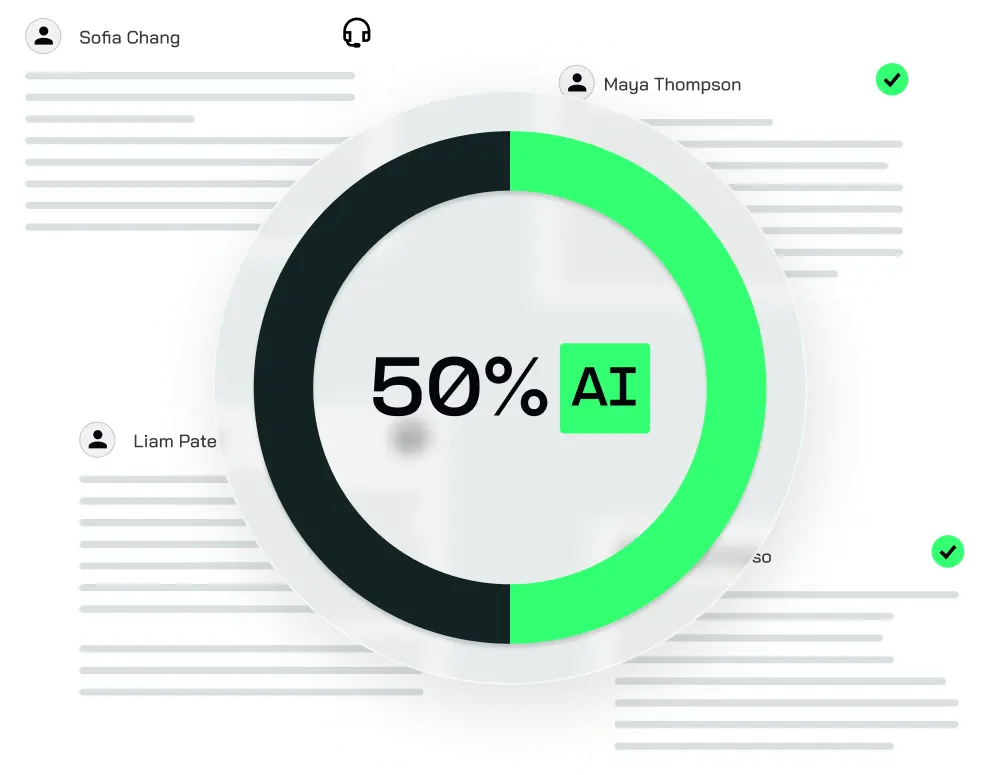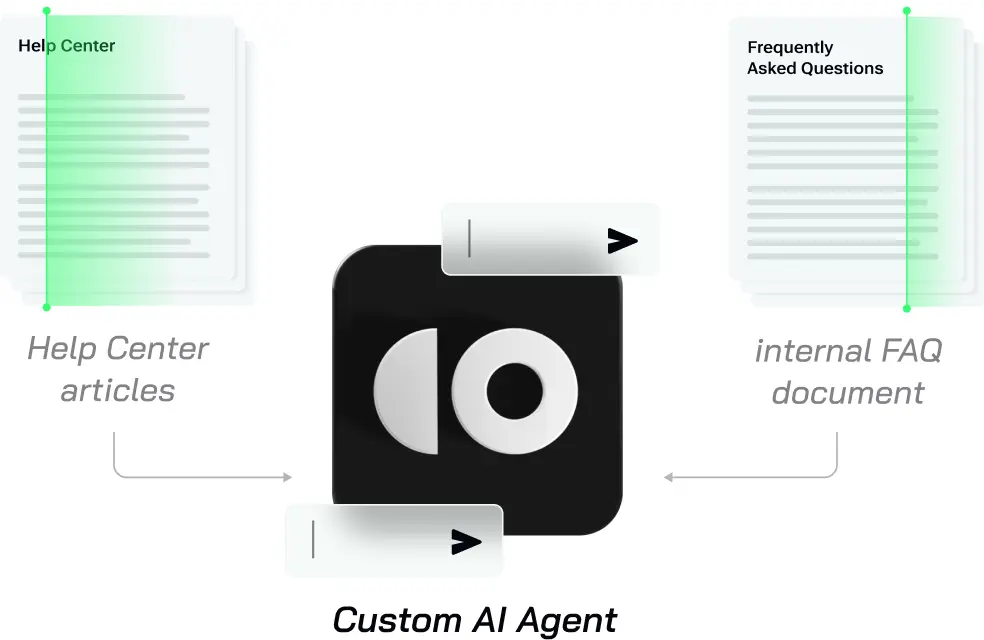
From Zero
to 81%
Auto-Resolved Chats
How AI Transformed Customer Support Service in One Month
The Client’s Profile
The Client’s Profile
Cocoatech is a privately funded software company that focuses on developing applications for MacOS. It was founded in 2001 in San Francisco, California. The company’s flagship product is Path Finder, a file management application designed to enhance productivity for Mac users.
Country:
USA
Industry:
Software Development
Integration time:
1 month
Support Team:
2 agents
Support Setup:
Zendesk Suite
Case Overview
Case Overview
Cocoatech experienced a surge in support requests following a high-impact partnership that significantly increased ticket volume. To maintain efficiency without overburdening the team, they sought a scalable solution that would enhance automation and streamline workflows. After exploring different options, they turned to CoSupport AI.
The goal for AI was to handle at least 50% of chats while also triaging the remaining conversations so that support agents could resolve escalated requests with less back-and-forth.

CoSupport AI’s
Tasks
Optimized
Ticket Handling
Automate the resolution process for 50% of incoming support tickets, reducing manual workload and improving overall efficiency.
AI-Driven
Triaging
Deploy an intelligent AI capable of triaging complex support requests before escalating them to support agents.
Seamless Customer
Experience
Enhance engagement with real-time AI assistance, delivering fast, personalized, and efficient support across all interactions.
AI Model Training
To ensure accuracy, Cocoatech’s Help Center articles, created with Zendesk Guide, along with an internal FAQ document were used to train the AI model. Using the data in question AI learned everything about the company, its products, and the resolution process for the repetitive questions.

Implementation
Seamless Integration with Zendesk
CoSupport AI seamlessly integrated with the client’s Zendesk workspace, including the Ticketing System, Chat, and Guide, to enhance customer support automation:
AI handles initial customer interactions directly in the chat widget, providing instant responses.

This setup empowers teams to deliver faster, smarter, and more automated customer support.
Implementation Timeline
November 7, 2024
Start of integration
End of December
First month results
December 2, 2024
Service launch
End of January
Second month
results
Summary
Summary
In a short time, we have greatly impacted the client’s customer support workflow. CoSupport AI introduced and implemented AI automation solutions that significantly improved the efficiency of resolving customer support queries.
81% of conversations were resolved by AI independently in January, 2025. Chats resolved by AI:
• Nov — 0 (before CoSupport AI);
• Dec — 474 (76% of total chats);
• Jan — 490 (81% of total chats).
The average resolution time dropped from hours to 5 minutes. Average Resolution Time:
• Nov — 8h 54m (before CoSupport AI);
• Dec — 8m 33s;
• Jan — 5m 12s.
These numbers show how CoSupport AI is making support smarter, faster, and more effective — helping customers get quick and accurate answers with less hassle.
Client’s feedback
Client’s feedback
The impact of launching the CoSupport AI chatbot is tangible. We get our hands on way fewer tickets now, as AI solves many on its own. The response accuracy is excellent — whenever we add a new data source, I am confident the AI won't misinterpret it.

Dragan Milić,
Senior Technical Specialist at Cocoatech
Recommendations
If you’re looking to optimize your customer support operations, CoSupport AI offers a proven, efficient, and scalable solution. Based on our success with Cocoatech, we recommend the following steps to achieve seamless AI-driven support for your business:
Identify Automation Goals
Define inquiries you want AI to handle versus those requiring human intervention.
Build the Knowledge Base (KB)
The KB is needed that AI will use to generate answers. Be careful here. Garbage in, garbage out.
Choose the Right Integration
Ensure your AI support solution integrates smoothly with your existing CRM or ticketing system (e.g., Zendesk, Freshdesk, or Intercom).
Enable Real-Time Synchronization
Keep AI up-to-date by syncing it with your help center and customer interaction data.
Deploy Across Multiple Channels
Connect AI support to the communication channels your customers prefer, such as email, social media, and live chat.
Monitor & Optimize
Continuously track AI performance, analyze customer interactions, and refine the model based on new inquiries and data.


